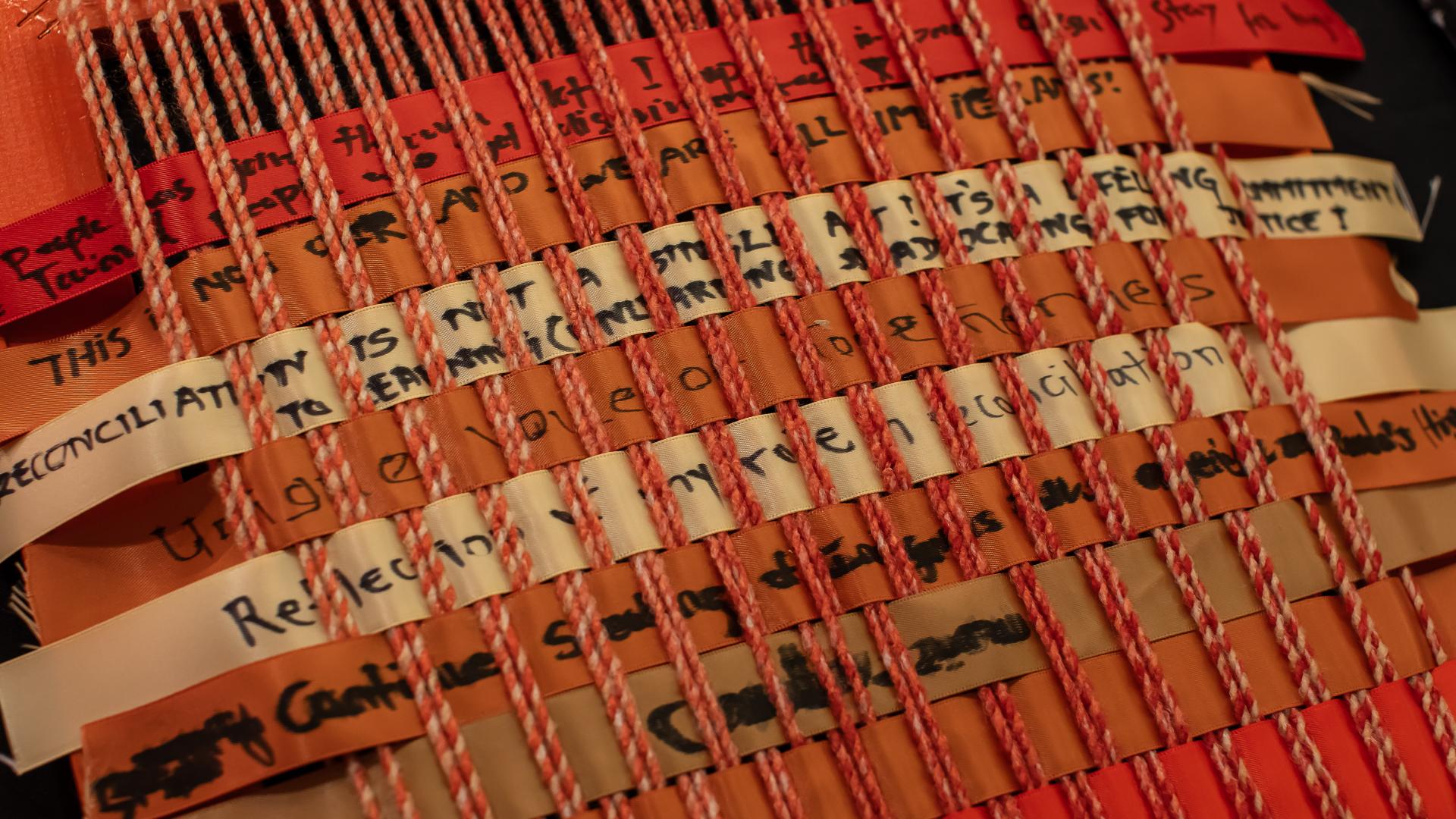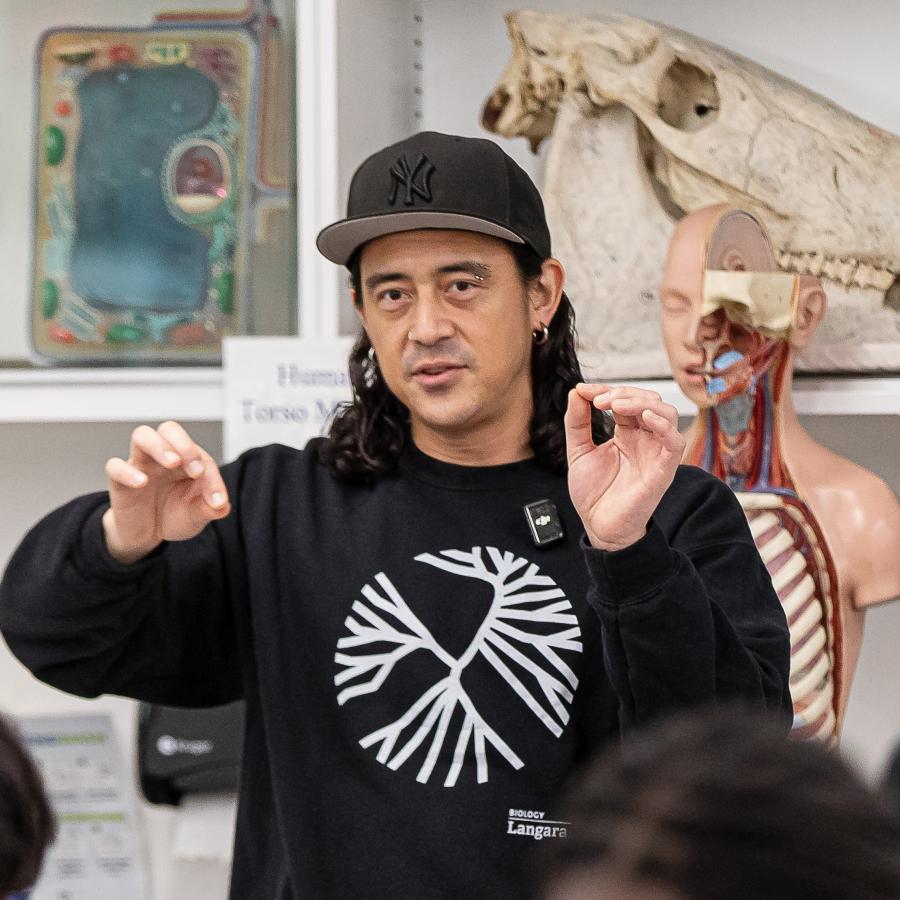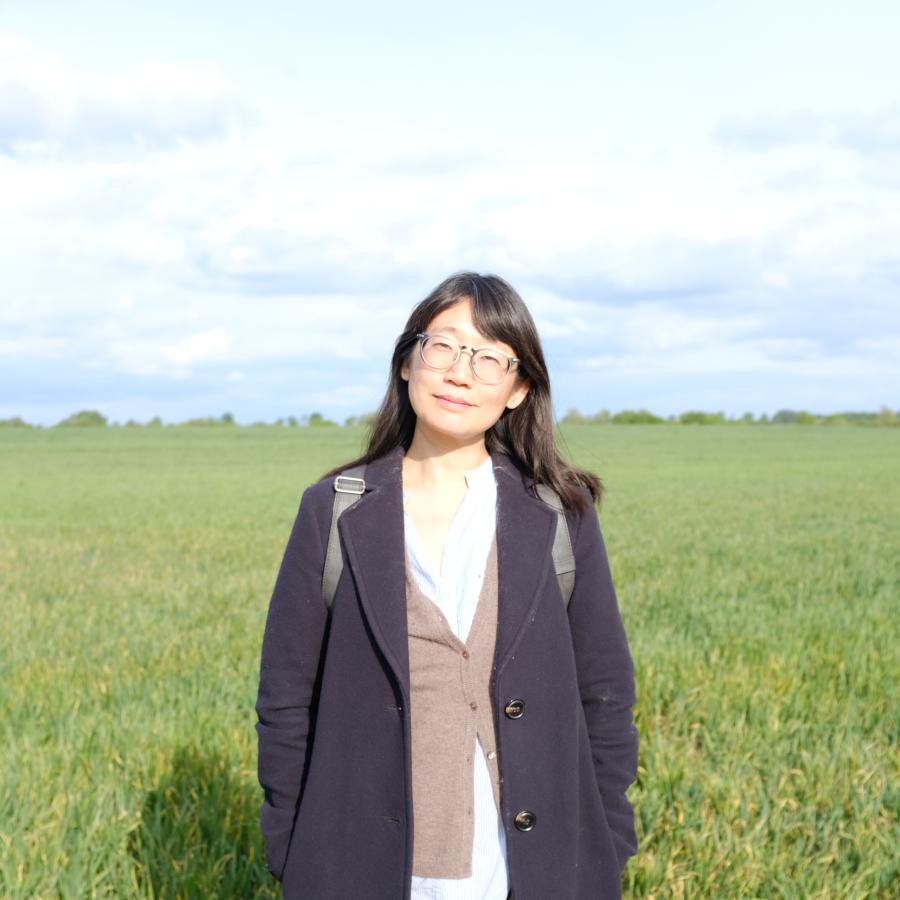Langara College's Early Childhood Education students engaged in National Day for Truth and Reconciliation activities, emphasizing the importance of understanding Indigenous histories and fostering empathy. These experiences not only honour the past but also prepare students to become thoughtful, responsible citizens and teachers who are committed to reconciliation.
At Langara College, the National Day for Truth and Reconciliation (NDTR) is more than a date on the calendar. It is a time when the College community comes together to listen, reflect and learn. For Term 3 students in the Early Childhood Education (ECE) diploma program, this year’s NDTR was an opportunity to step outside the classroom and experience reconciliation in action through a series of Education Stations across campus.
A call to action for educators
ECE Instructor Negar Kaviani emphasizes the importance of these activities: “For me, NDTR is not only a time for remembrance, but also a call to action for educators to witness history and engage in reconciliation.” She encourages her students to see reconciliation as something lived, not abstract.: “This models that reconciliation is lived work; we participate, listen, and reflect together.” By immersing students in these activities, she aims to ensure that the painful parts of history are not forgotten, but rather serve as a foundation for building stronger, more inclusive communities.
Personal reflections on reconciliation
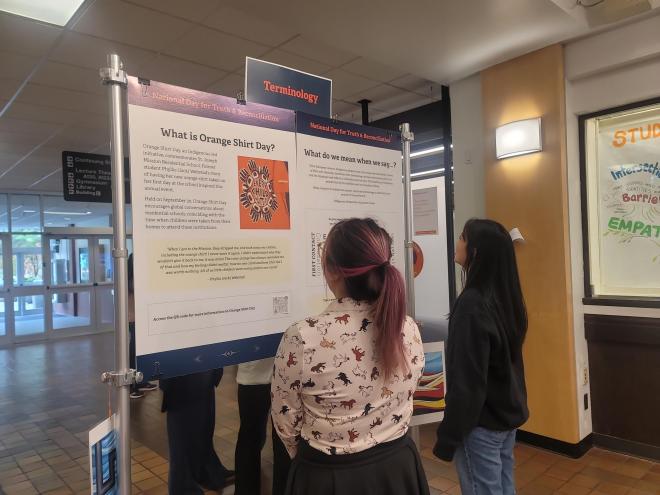
That lived experience made a deep impression on her ECE students. Student Marie Soriano reflects on how the lessons carried an emotional weight, saying, “What stood out was how alive the legacy of residential schools is. How they still affect people today.” Such insights deepen students' understanding of the trauma and systemic injustices still present in Indigenous communities.
For student Alina Kassam, the takeaway was about relationships: “I learned that building loyal and genuine relationships, with the foundation of respect, trust, collaboration, and cultural acceptance is crucial when working with children and families from Indigenous backgrounds.”
A commitment to ongoing learning
The learning opportunities provided by NDTR went beyond acknowledging the past. It became a way of preparing future educators for their role in shaping the future. Student Arianne Bernardo was reminded of the importance of cherishing Indigenous culture: “It is important that we acknowledge and cherish their culture... to spread awareness and educate other children about the Indigenous community and culture.” This reflects a growing awareness among students that reconciliation is not a one-time event but an ongoing commitment to learning and understanding.
Creating inclusive learning environments
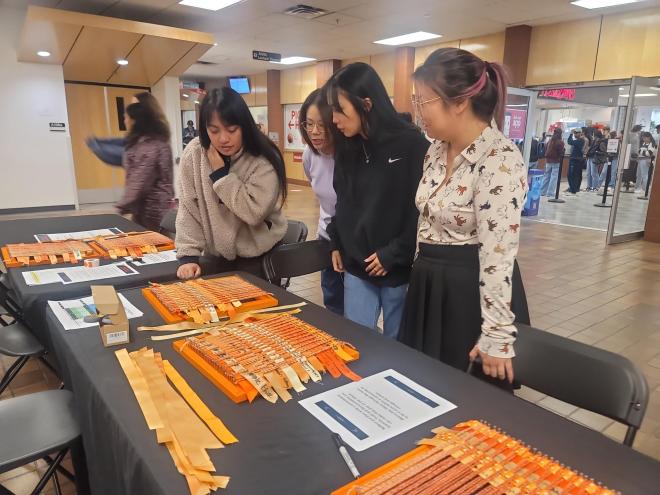
For students like Scarlet Huang, the lessons felt immediately practical. She shares, “I think something important for me to do is to be mindful when incorporating Indigenous practices.” This mindfulness, she realized, is part of creating inclusive environments where children and families feel free to express their identities.
Kaviani points out that understanding Indigenous perspectives is crucial for future educators. “British Columbia’s Early Learning Framework invites educators to question colonial assumptions about childhood and education,” she explains. By doing so, students come to appreciate diversity as a strength rather than a challenge, enabling them to co-create learning experiences that are inclusive and meaningful.
Langara’s commitment to reconciliation
Langara’s commitment to reconciliation and Indigenization is evident through its approach to NDTR. “We are accountable for whose stories are told and how they are carried forward,” Kaviani reminds her students. That sense of accountability resonates with students, who are encouraged to engage with these histories actively, shaping them as thoughtful, responsible citizens.
Shaping thoughtful citizens
For many students, the day was transformative. They came away not just with knowledge, but with a sense of responsibility. As Marie Soriano puts it, “Participating in NDTR gives you a chance to learn more about history, have a polite conversation, and get a better sense of Canada's colonial past.” These moments of reflection remind students that reconciliation is an ongoing journey which will guide them as they step into their future roles as educators.
Langara’s Department of Early Childhood Education offers a number of full- and part-time programs for future educators. Discover what works best for your goals.
National Day for Truth and Reconciliation takes place annually on September 30. In 2015, the Truth and Reconciliation Commission–established as part of the Indian Residential Schools Settlement Agreement–presented an overview of its findings in a final report, including 94 calls to action. Read the report and learn more about the calls to action.
